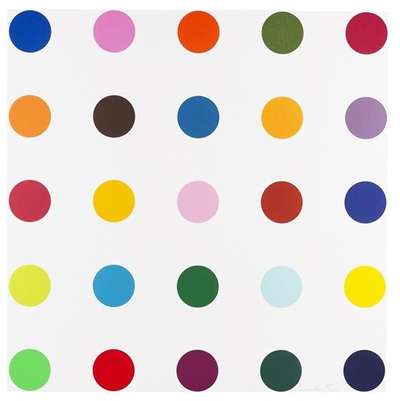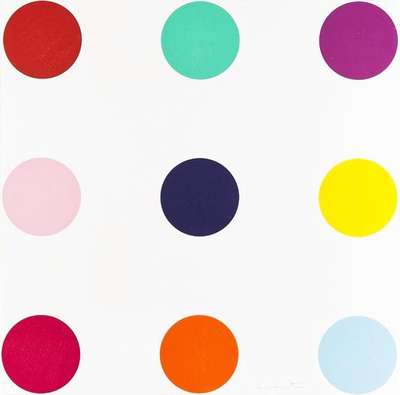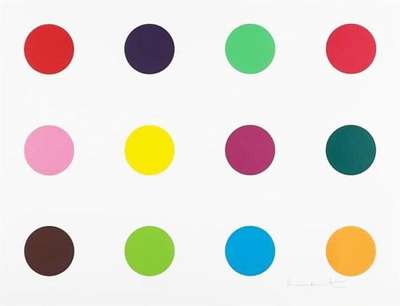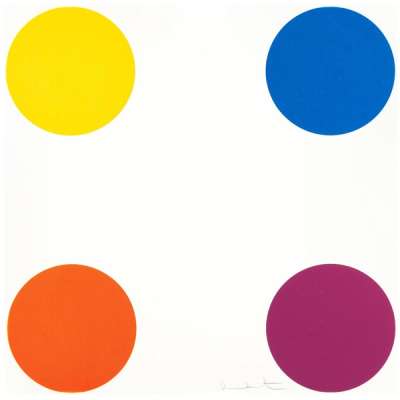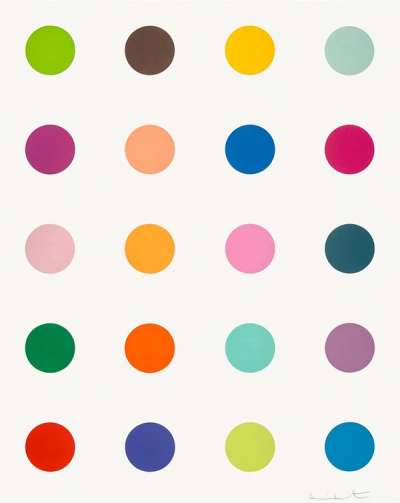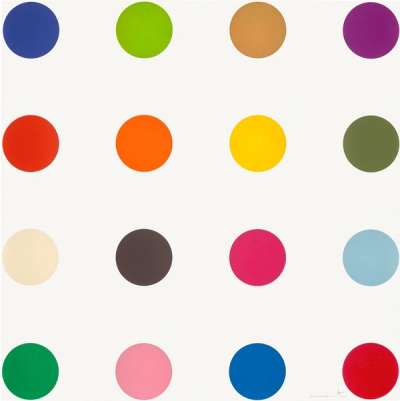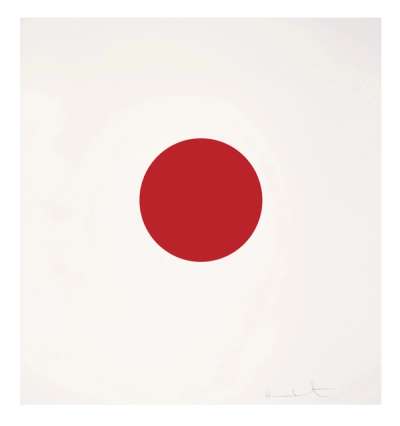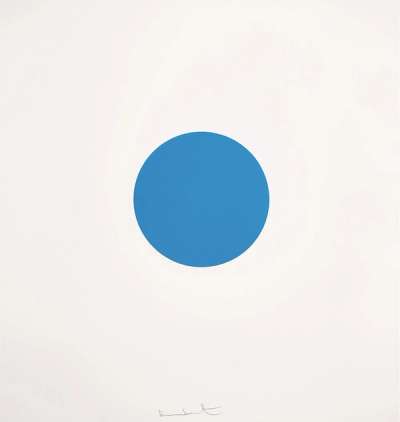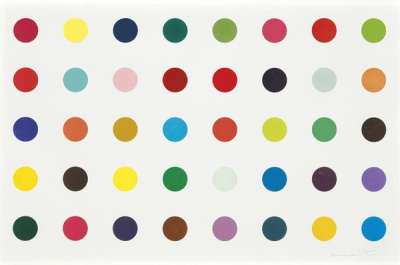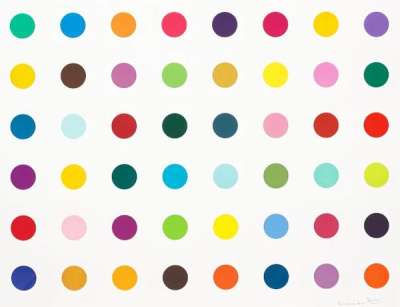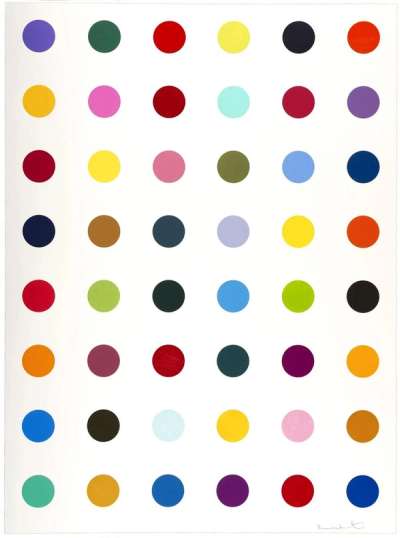
Cyclizine

Cyclizine
Signed Print
Damien Hirst
£7,000-£10,500Value Indicator
$14,000-$21,000 Value Indicator
$12,500-$19,000 Value Indicator
¥60,000-¥100,000 Value Indicator
€8,500-€12,500 Value Indicator
$70,000-$100,000 Value Indicator
¥1,320,000-¥1,990,000 Value Indicator
$9,000-$13,500 Value Indicator
AAGR (5 years) This estimate blends recent public auction records with our own private sale data and network demand.
There aren't enough data points on this work for a comprehensive result. Please speak to a specialist by making an enquiry.
Medium: Woodcut
Edition size: 48
Year: 2010
Size: H 311cm x W 311cm
Signed: Yes
Format: Signed Print
TradingFloor
Track this artwork in realtime
Watch artwork, manage valuations, track your portfolio and return against your collection
Meaning & Analysis
Cyclizine is a woodcut print from Damien Hirst’s 12 Woodcut Spots series from 2010. The print shows four spots that are identical in size and shape, depicted in red, blue, green and pink. Across the artist’s vast oeuvre every spot painting represents a unique combination of colours. The 12 Woodcut Spots series is an exploration of colour and form that is distinctly Hirstian.
The 12 Woodcut Spots series recalls Hirst’s widely recognised spot paintings that date from 1986 to 2011. Since 1986, Hirst has created over 60 spot paintings a year, it’s ‘grid formula’ establishing the basis for an endless series. The endlessness of the series allows for an infinite exploration of harmonious and contrasting colour combinations.
The titles of the prints in this series are based on names of chemical compounds and are abstract in their lack of signifying something tangible in the world. The chemical name evokes a nondescript powder or pill that exacerbates the incessant endlessness to the series. Hirst in 2000 remarked on the impact of an installation of multiple spot paintings, “it’s an assault on your senses. They grab hold of you and give you a good shaking. As adults, we’re not used to it. It’s an amazing fact that all objects leap beyond their own dimension.”
Damien Hirst, born in Bristol in 1965, is often hailed the enfant terrible of the contemporary art world. His provocative works challenge conventions and his conceptual brilliance spans installations, paintings, and sculptures, often exploring themes of mortality and the human experience. As a leading figure of the Young British Artists (YBA) movement in the late '80s, Hirst's work has dominated the British art scene for decades and has become renowned for being laced with controversy, thus shaping the dialogue of modern art.
